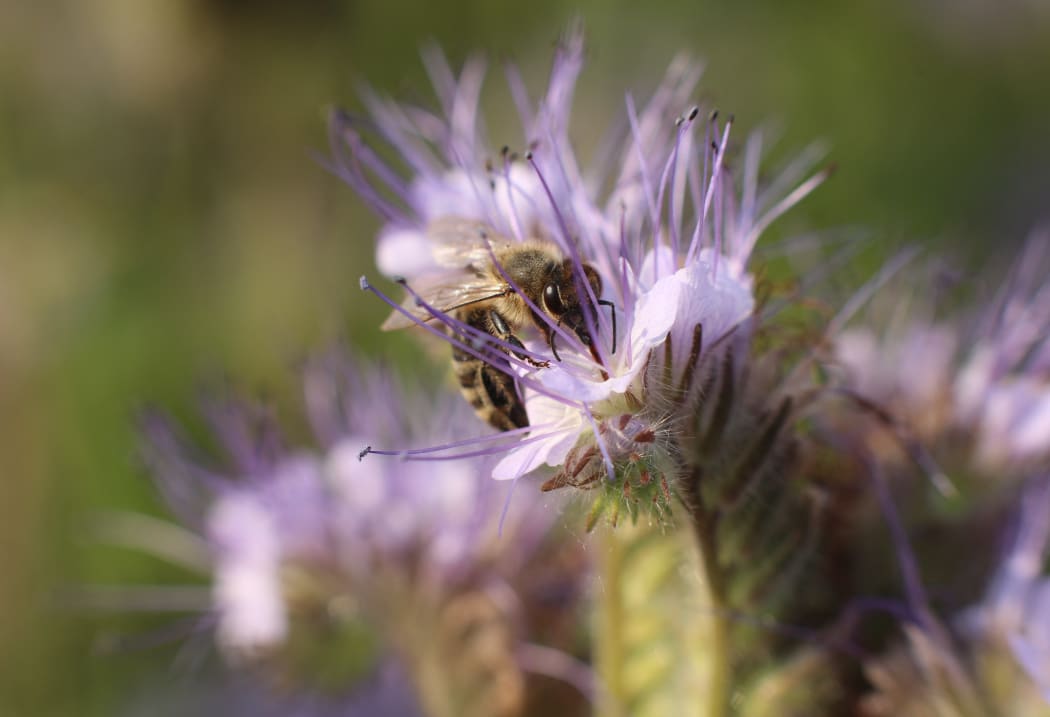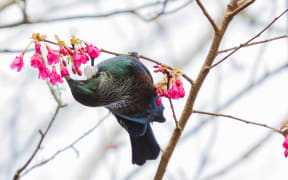With spring beginning tomorrow beekeepers are calling on everyone and anyone to plant bee-friendly plants.

Bees are under threat and to support their numbers plant out trees, shrubs and annuals that attract them. Photo: AFP
Spring means its Bee Aware Month. Apiculture New Zealand, which represents beekeepers and honey producers, is asking Kiwis to feed the bees by planting trees and plants that attract bees.
Chief executive Karin Kos said bee-friendly trees, wildflowers and shrubs provided essential nutrition for the bee population.
"We recognise that under Covid-19 alert level 4 bee-lovers might not be able to easily access bee-friendly plants right now, so instead we want to encourage Kiwis to get out into their gardens and find a spot for a bee tree. Once our alert levels have changed then you can get the tree in the ground," she said.
"Some of the best bee-friendly trees are many citrus and pip fruit trees, or native plants like harakeke or rewarewa. These offer bees excellent, ongoing sources of nutrition and well-nourished bees are better able to withstand threats like varroa, habitat loss, climate change and diseases."
The best place to get ideas of what to plant in September is to visit the Trees for Bees Research trust website she said.
Trust spokesman Dr Angus McPherson said honeybees and other pollinators were the backbone of the agriculture sector, so it was important farmers did their bit.
"Everything from market gardens to orchards to clover, pasture, and arable all rely on pollinators for the crops. So we need healthy pollen plentiful healthy pollinators to to support that.
"Bees around the world are under pressure. So one of the ways that we can help balance that is making sure that they've got plentiful supplies of natural pollen and nectar to feed upon."
McPherson said it was not always about planting a larger area of plants but about planting the right plants.
"Farmers are becoming more aware of the importance of bees, farmers do a lot of planting anyway for things like shade, shelter and land stabilisation.
"We're not asking them to put aside more area. All we're asking is that when you plant something there, you think about the bee forage species that you can use in that situation. "
He said the trust had just published a new handbook this year on planting trees for bees on farm, which would be up on the trust's website soon.
If you want more information about what plants are good for bees you can check out the trust's website here.


